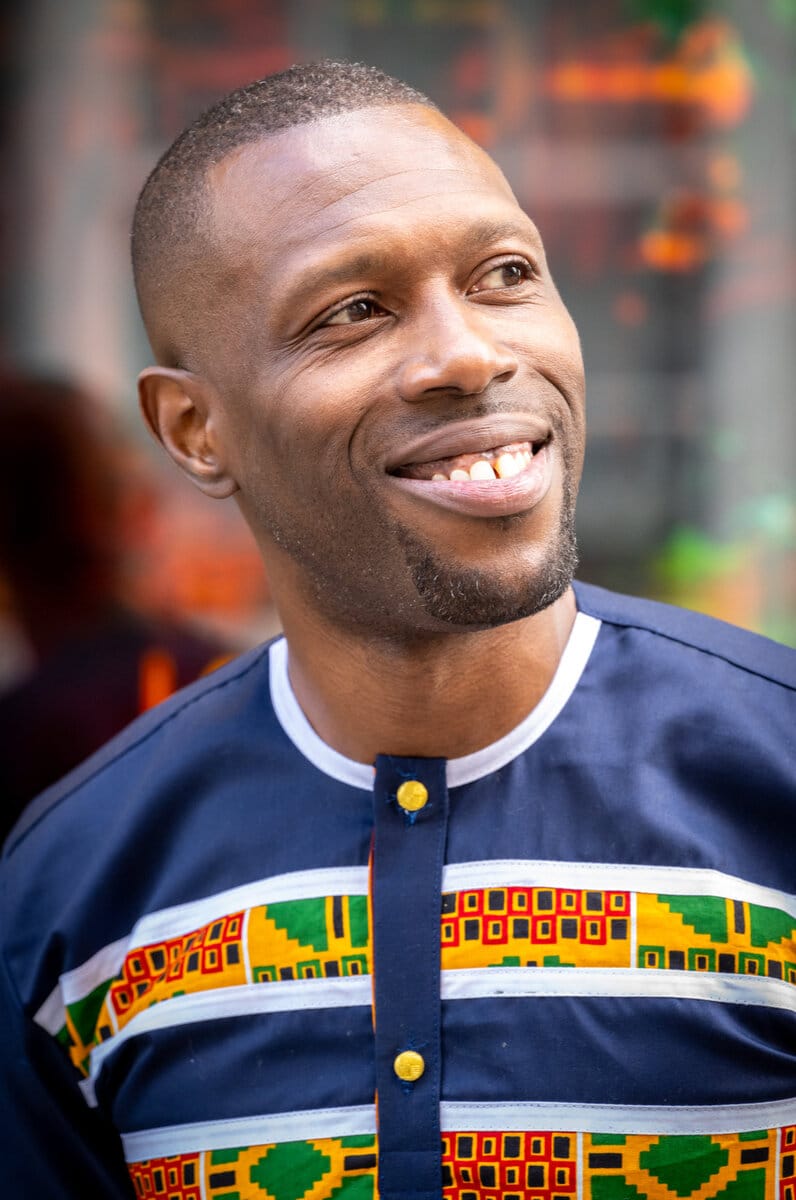
A vibrant figure surrounded by swirling colours and abstract shapes symbolises the complexity of mental health and intersectional identities.
Setting the Stage for Authentic Transformation
Hey, Changemakers! Welcome back to The Intersection—your space for dismantling mental health myths and pioneering personalised solutions that centre your lived experiences. Today, we’re confronting one of the biggest challenges in mental health care: the oversimplification of diagnoses. If you’ve ever felt like a label doesn’t fully capture your reality, this one’s for you. Let’s embrace the messy, beautiful complexity of mental health.
Before we dive deeper, let’s reflect on where you currently stand in your mental health journey:
Mental health is more than just sticking a label on someone’s forehead. It’s a mosaic. As C. Wright Mills reminds us, our struggles cannot be separated from the larger societal forces shaping them. Diagnoses like “depression” or “anxiety” don’t account for the systemic racism, oppression, and trauma that often underlie these experiences. We need a holistic framework like ICC™ that honours your entire being—not just the label.
As someone who has moved through various intersections of identity—being a Black, gay, neurodivergent man—I’ve seen firsthand how labels like ‘depression’ or ‘anxiety’ can fail to capture the unique realities we face fully. The mental health system often feels like a maze, especially when it’s designed to treat individuals as monolithic. There were moments in my journey where I felt invisible, where therapy frameworks didn’t address the cultural, social, or historical traumas that were part of my story. However, once I began to embrace those complexities and work through them with a culturally conscious approach, healing became possible and transformative.
This Week’s Exclusive Offer: Limited Spaces for ICC™ Coaching and Therapy
Embark on your ICC™-enhanced journey with 30% off your first month of AI-augmented therapy or coaching tailored to your unique identity. To ensure personalised care, we’re limiting this offer to only 15 people, so book your free consultation today and secure your spot.
In White Talking Therapy Can't Think in Black, I mention, “Too often, access to care is rationed by barriers both seen and unseen—those who need it most are left behind by a system more interested in ticking boxes than listening to real voices.” This offer breaks those barriers, ensuring you are seen, heard, and healed in ways that conventional models often ignore.
Unpacking the Realities Behind Mental Health Labels
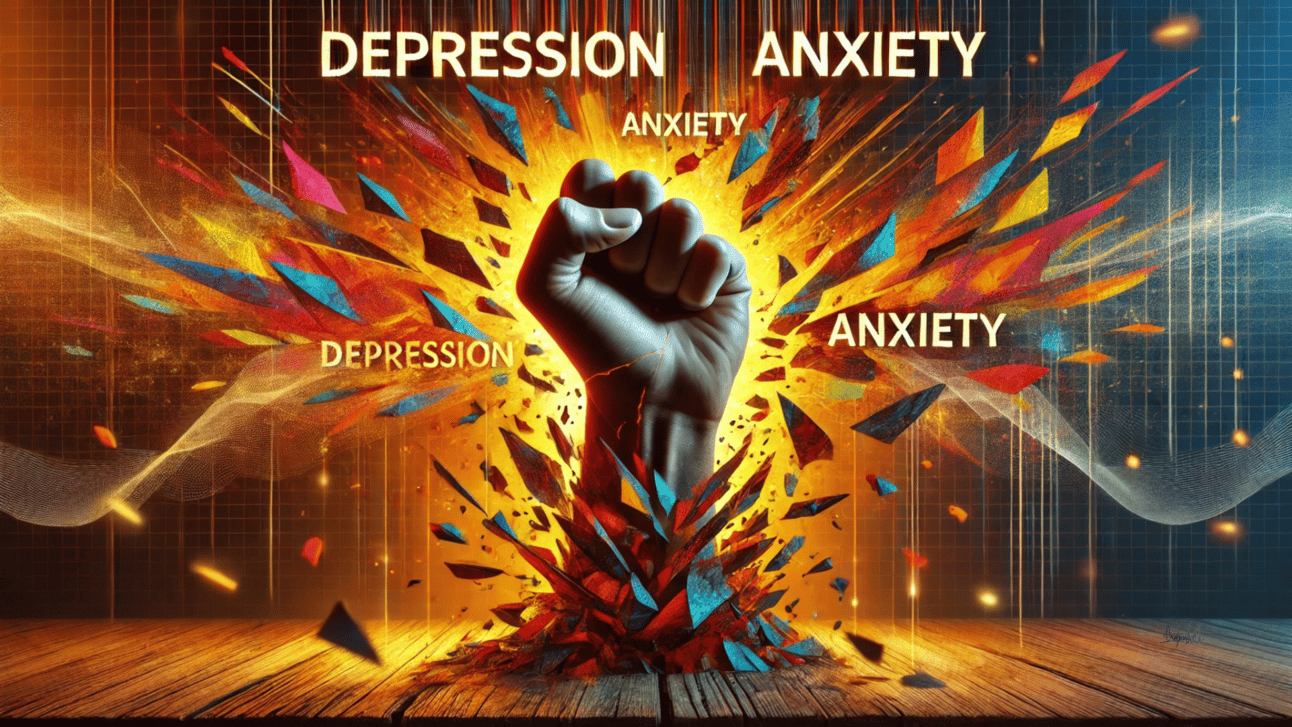
: A hand breaking through labels that say “Depression” and “Anxiety,” surrounded by abstract shapes representing complexity in mental health.
Let’s get to the heart of it. Diagnostic labels like “anxiety” or “depression” offer a convenient shorthand for symptoms, but they often overlook the rich, multifaceted experiences of those living with these conditions. No two experiences of anxiety are alike—because no two people are the same. Each of us carries the complexities of our identity, cultural background, and history, and they shape how we experience mental health.
Think of it like this: Your mental health is a mosaic—each piece reflecting a different part of you. Some are jagged, and some are smooth, but they create something incredible together. It’s time to move beyond the one-size-fits-all approach and embrace the full spectrum of who you are.
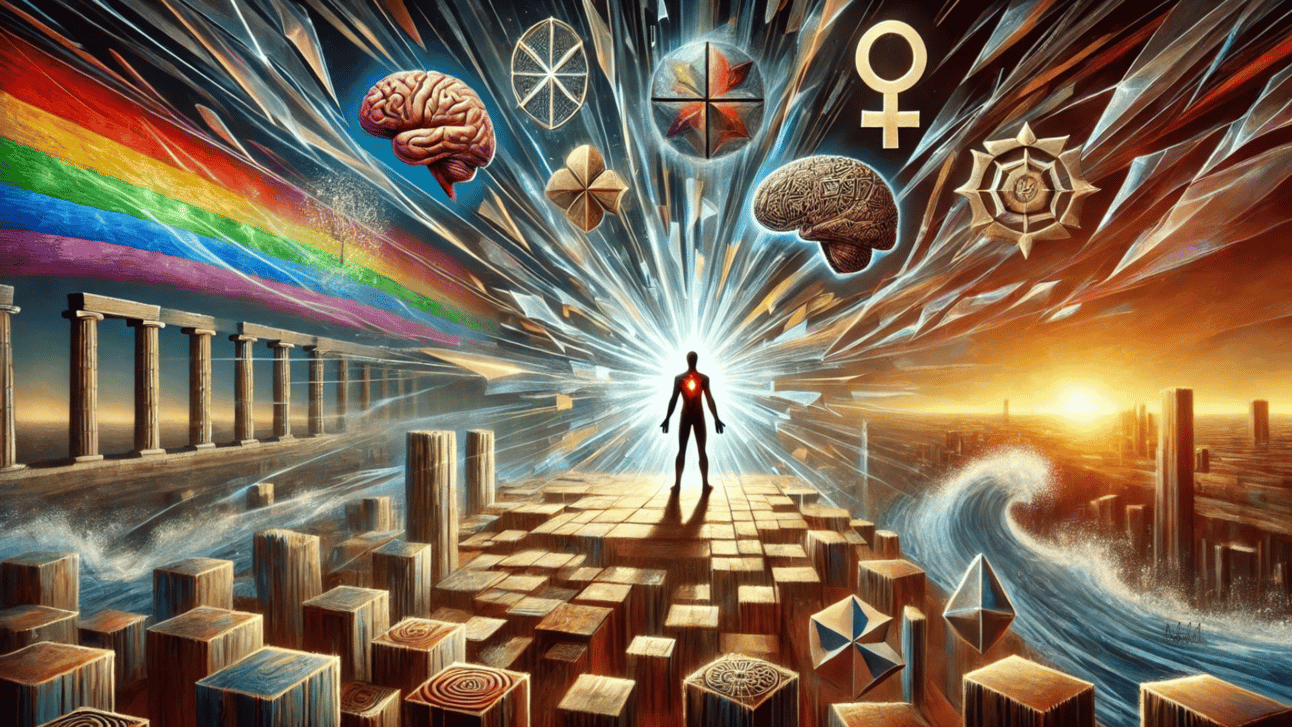
A figure navigating two contrasting realities—one traditional, one vibrant, and one abstract—symbolising marginalised individuals' emotional labour.
W.E.B. Du Bois’ concept of “double consciousness” sheds light on how individuals from marginalised communities experience mental health. We often have to navigate the world through our lens and society’s perceptions of us. This emotional labour—this double consciousness—adds complexity to mental health that traditional labels don’t account for.
When labels like “depression” or “anxiety” are applied without considering someone’s cultural and historical context, we risk missing the root cause of the issue. For instance, within Black and Brown communities, what might be labelled as "depression" could be a manifestation of generational trauma, systemic racism, or exclusion from mainstream society. If we don’t look deeper, we reduce complex experiences into simplistic categories, leaving individuals feeling misunderstood and underserved.
There’s a reason 400,000 professionals read this daily.
Join The AI Report, trusted by 400,000+ professionals at Google, Microsoft, and OpenAI. Get daily insights, tools, and strategies to master practical AI skills that drive results.
Beyond the Surface: Shifting from Generic Care to ICC™

A figure with light beams emerges from their body in a fragmented landscape, representing trauma and the intersection of mental and physical distress.
Mental health care shouldn’t just scratch the surface. Too often, labels oversimplify the depth of someone’s experiences. As I write in White Talking Therapy Can't Think in Black, “labels often erase the complexity of lived experiences, particularly for those who exist at the intersections of multiple identities.” This is especially true for those of us navigating intersecting identities. As Bessel van der Kolk teaches us in The Body Keeps the Score, trauma is experienced not just in the mind but also in the body. Yet, traditional diagnostic labels fail to address these embodied realities.
ICC™ doesn’t settle for generic solutions. Like a river carved through stone, it creates a new, inclusive framework that personalises care based on your unique identity. This isn’t about tweaking the system—it’s about revolutionising it.
Consider Ama, a Black woman in her 30s who was diagnosed with generalised anxiety disorder. For years, she felt a growing sense of unease, but when she sought help, her anxiety was addressed, but her cultural identity and the racial trauma she’d faced were ignored. It wasn’t until she worked with me, an ICC™-trained therapist, that she began to unpack the more profound issues—how living in predominantly white spaces, where she constantly had to ‘code-switch’ to fit in, had contributed to her anxiety. Through culturally conscious care, Ama’s healing didn’t just target the symptoms but addressed the root causes, helping her reclaim her identity and heal from the racial trauma that had long been ignored.
ICC Insights: Personal Stories and Lessons from the Field
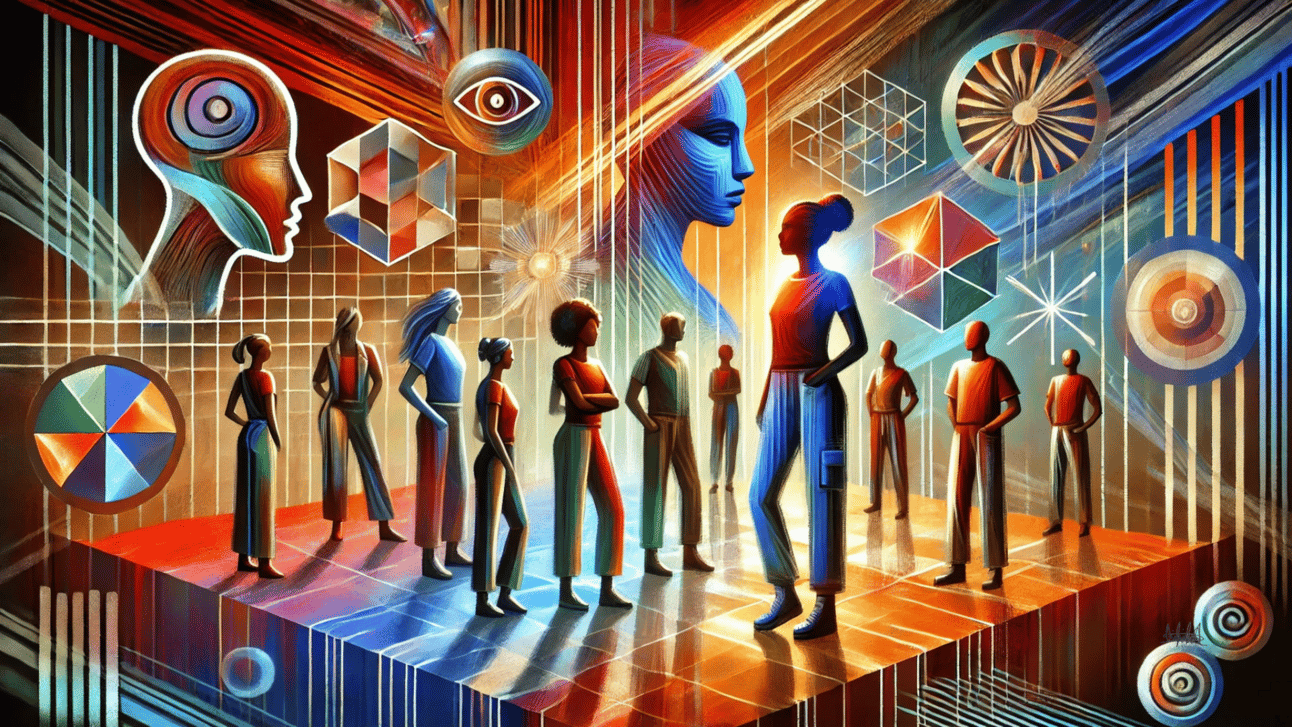
A diverse group, including a young Black woman, stands in a vibrant, abstract scene. Light beams connect them to cultural symbols, surrounded by geometric shapes and surreal elements, symbolizing healing and identity.
In my book, I share personal stories from those who felt unseen and misdiagnosed by traditional mental health systems. One such story is of a young Black woman who sought therapy for depression. Rather than addressing the root causes—namely, the systemic racism she faced daily—her therapist focused only on behavioural symptoms. This type of treatment, as I’ve written, “leaves the trauma of racism unaddressed, which only deepens the wound.”
Here are some real-world stories from individuals who have experienced the power of culturally conscious care through ICC™:
Testimonial from a Psychotherapist:
"Engaging in therapy that recognised and honoured my intersectional identity was also beneficial. Jarell's culturally conscious approach addressed my experiences and the complex interplay of cultural and societal factors that shape them."Testimonial from an Entrepreneur:
"Therapy with Jarell Bempong was transformative, deeply acknowledging my cultural identity. Jarell’s commitment was profound, equipping me with comprehensive insights and resources that continue to shape my journey."
Challenge the System: Your Call to Action for Real Change

A figure breaks through fragmented geometric barriers, surrounded by vibrant colors and abstract shapes. Floating cultural symbols highlight the complexity of mental health, representing empowerment and transformation.
As I state in White Talking Therapy Can't Think in Black, “The mental health system is deeply flawed because it is built on a foundation that ignores cultural context, systemic racism, and lived experience. True change must come from within—by breaking free from these labels and creating frameworks that speak to mental health's real, lived complexities.”
It’s time to break free. Mental health is a mosaic, not a label. By adopting ICC™, you can begin a real journey towards healing and transformation. Let’s dismantle the barriers that hold us back and start creating a future where every intersection of your identity is honoured.
Breaking the Cycle: Moving Beyond Generic Care
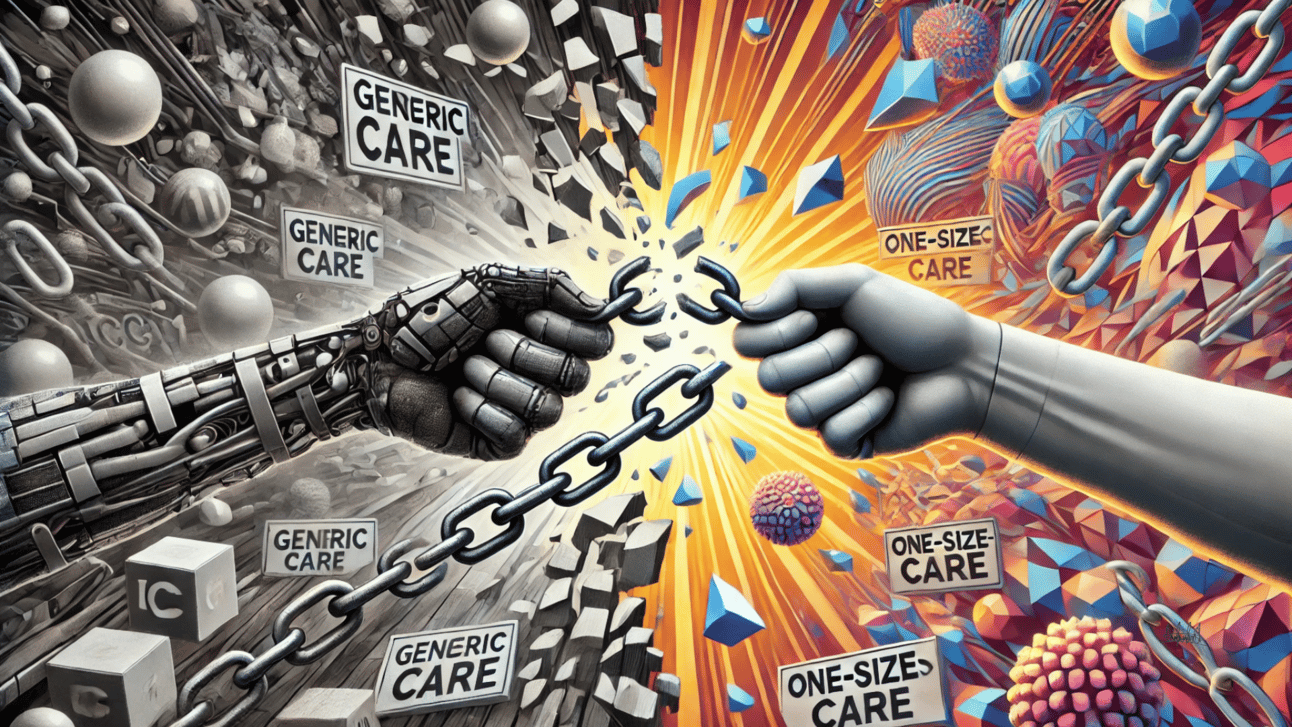
Two hands breaking a chain of labels like “generic care” and “one-size-fits-all,” symbolising the shift to personalised mental health care.
The ICC™ Framework offers a clear roadmap to breaking free from generic mental health solutions. Through personalised, culturally conscious care, we can dismantle the systemic barriers that prevent so many from accessing the help they need. This isn’t just about improving the system but transforming it.
In another case, Ravi, a young Asian man, had been misdiagnosed for years with depression. Standard treatments didn’t work because his distress wasn’t simply emotional—it was cultural. His struggles with feeling disconnected from his family’s traditional values and navigating life in a predominantly white society had compounded his mental health issues. It wasn’t until he engaged in ICC therapy with me that he understood the nuances of cultural displacement that Ravi could genuinely heal.
The Future of Mental Health: Where Healing Meets Innovation

: A radiant figure in a futuristic cityscape, illuminated by beams of light and cultural symbols, representing empowerment through personalised care.
As Dr. Lisa Coleman said, “Belonging unlocks innovation.” The future of mental health care lies in embracing intersectionality and recognising the full spectrum of identity. ICC™ is leading this revolution, providing a model honouring the whole person, not just the label.
Takeaway for the Week: Reflect, Learn, and Act
This week, reflect on your mental health care approach. Are you seeing the whole picture or relying on labels that oversimplify someone’s experience? Challenge yourself to dig deeper. Consider how embracing the complexity of identity can lead to better, more personalised care.
Let’s Create Real Change Together
Ready to take the first step toward personalised healing and growth? I offer an exclusive 30% off your first month of ICC™-enhanced therapy or coaching. With only 15 spots available, this is your chance to experience AI-augmented care tailored to your unique identity. Book your free consultation today and start your journey towards authentic transformation.
Until next time—remember, your mental health isn’t one-size-fits-all because you’re too extraordinary for that kind of box!
Author Bio
I’m Jarell Bempong, an award-winning mental health innovator and bestselling author of White Talking Therapy Can’t Think in Black. As a Black, gay, neurodivergent English-Ghanaian man, I’ve navigated the complexities of identity and mental health firsthand. My mission is to challenge the systemic biases in mental health care and create spaces where everyone’s whole identity is honoured. Through my Intersectional Cultural Consciousness™ (ICC™) framework, I help individuals and organisations move beyond labels and unlock their full potential with personalised, culturally conscious care.
